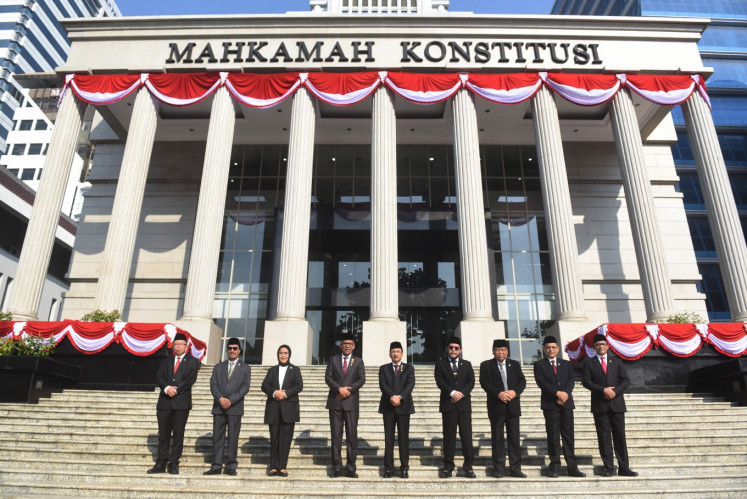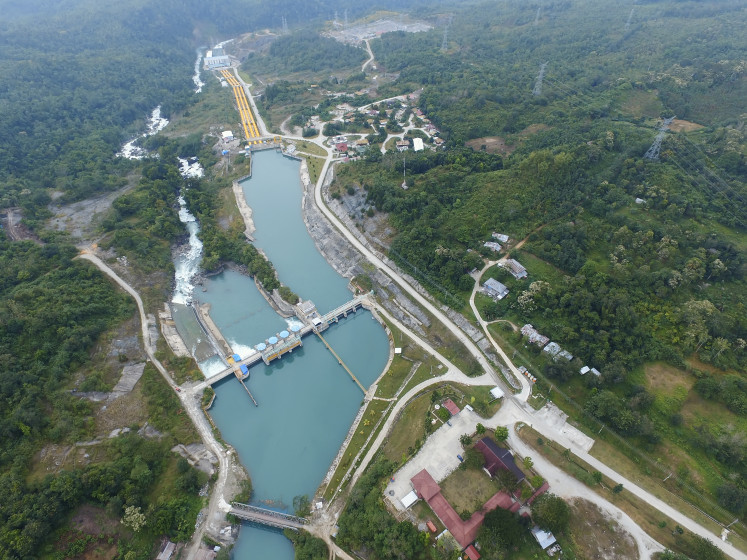Popular Reads
Top Results
Can't find what you're looking for?
View all search resultsPopular Reads
Top Results
Can't find what you're looking for?
View all search resultsPDI-P, Golkar members back ending KPK prosecutions
Some legislators whose fellow party members were implicated by the Corruption Eradication Commission (KPK) in a vote-buying scandal are backing a bill to strip the KPK of its authority to conduct criminal prosecutions
Change text size
Gift Premium Articles
to Anyone

S
ome legislators whose fellow party members were implicated by the Corruption Eradication Commission (KPK) in a vote-buying scandal are backing a bill to strip the KPK of its authority to conduct criminal prosecutions.
The Attorney General’s Office (AGO) has the sole authority to prosecute criminals, Eva Kusuma Sundari, a legislator from the Indonesian Democratic Party of Struggle (PDI-P) on House Commission III overseeing law and human rights, said on Monday.
“The Attorney General’s Office Law clearly stipulates that prosecutions are the authority of the AGO,” she told The Jakarta Post.
The AGO previously said it had enough resources to prosecute all cases of graft. Junior Attorney General for Internal Monitoring Marwan Effendy said that all prosecutions could be conducted by local prosecutors’ offices — a move that would effectively return to the system in place before the KPK was established in 2003.
Eva said that the law on the AGO might have reduced the KPK’s authority.
The Golkar Party’s Bambang Soesatyo agreed with Eva, saying that the KPK should focus on prevention and that checks and balances could only be achieved through a division of responsibilities. “We need to separate the authority to investigate and prosecute corruption cases in order to impose effective monitoring,” Bambang said.
Bambang said that no one has been monitoring the KPK’s investigation of the bribery scandal linked to the appointment of Miranda S Goeltom as a Bank Indonesia senior deputy governor in 2004.
The antigraft body arrested 25 current and former House of Representatives lawmakers from the PDI-P, Golkar Party and the United Development Party (PPP) for alleged complicity in the vote-buying case, including former national development planning minister Paskah Suzetta and veteran PDI-P member Panda Nababan.
Bambang said giving the AGO the sole authority to prosecute corruption would improve prosecutions.
He also said that the authority to investigate corruption allegations should be returned to the National Police, adding that the nation could not rely on the KPK forever. “Remember, the KPK is an ad hoc body. As soon as corruption is abated, KPK must focus on preventing corruption and supervising law enforcement institutions in terms of handling corruption,” he said.
The government’s draft bill amending the law on corruption could strip the KPK of its law enforcement authorities.
Members of Commission III also discussed amending the KPK Law, which might severely weaken the antigraft body.
Legal expert Andi Hamzah, who led the team revising the Anticorruption Law, said there was no intention to weaken the nation’s fight against corruption.
“Our draft does not grant the KPK authority to prosecute because this authority should be regulated by the law on the KPK which is currently being drafted by the legislators,” he said.









